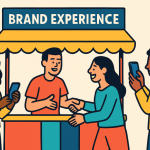In the digital age, few platforms have fostered global connection as effectively as online gaming. What began as a form of entertainment has evolved into a social and cultural phenomenon, bridging geographical divides and bringing together players from vastly different backgrounds. From massive multiplayer online games (MMOs) to fast-paced esports competitions, online gaming has created communities that transcend language, borders, and beliefs.
This article explores how online Togel279 fosters cross-cultural connection, the ways it builds empathy and global friendships, and the potential challenges and opportunities it presents for a more connected world.
The Global Nature of Online Gaming
Online gaming is inherently international. Whether you’re battling side by side in Fortnite, strategizing in League of Legends, building in Minecraft, or racing in Mario Kart Tour, chances are you’re interacting with people from various parts of the world. Popular titles support international servers, multi-language options, and in-game chat features that make cross-border communication seamless.
Statistics Show Global Reach
- As of 2024, over 3.5 billion people worldwide engage in video games, with a large percentage playing online.
- Major platforms such as Steam, PlayStation Network, Xbox Live, and mobile app stores serve a global audience.
- Games like PUBG, Genshin Impact, and Call of Duty: Mobile attract millions of players daily from countries across Asia, Europe, the Americas, and Africa.
This international access allows players to connect with others they might never have encountered in real life.
Shared Goals Create Bonds
One of the most powerful aspects of online gaming is the way it unites people through shared objectives. Whether it’s capturing a flag, completing a raid, or surviving a zombie onslaught, players must cooperate, communicate, and trust one another to succeed.
Cooperation Over Competition
Even in competitive environments, such as esports or battle royale games, players often form alliances, teams, or clans that require constant collaboration. These relationships often transcend gameplay and evolve into online friendships and communities.
- In MMOs like Final Fantasy XIV or World of Warcraft, guilds often include members from a dozen different countries.
- Games like Among Us or Valorant require players to communicate clearly and build rapport, sometimes even without a common spoken language.
The result? Cross-cultural communication becomes normalized, and players start to appreciate different perspectives and customs.
Learning Through Play: Cultural Exchange
Gaming is not just a social tool—it’s also an educational one. Through interaction, players naturally learn about each other’s lives, holidays, foods, languages, and values. These exchanges happen informally but have lasting impact.
Language Learning and Exposure
Many gamers improve their second-language skills, particularly English, simply through voice chat or text conversations. In fact, some language teachers use multiplayer games to immerse students in real-time communication.
Examples:
- Japanese players picking up English through Western RPGs.
- European players teaching others phrases in French, Spanish, or German in team chats.
- Communities forming around localized servers where players adopt bits of each other’s native slang or customs.
Cultural Awareness
Players often organize in-game celebrations of real-world holidays such as Diwali, Ramadan, Lunar New Year, or Pride Month. Developers, too, integrate cultural themes, creating seasonal events based on global traditions—giving players firsthand exposure to new customs.
Social Media and Streaming: Expanding the Reach
Platforms like Twitch, YouTube, and Discord take gaming connections further. Gamers can stream content, join interest-based communities, and engage with fans or fellow players worldwide.
- Streamers often build international followings, bringing together audiences from diverse backgrounds.
- Discord servers host language exchange meetups, cultural discussions, and international game nights.
- Global tournaments like the League of Legends World Championship attract fans from every continent and promote cross-cultural fandoms.
These spaces aren’t just for gameplay—they’re where conversations, learning, and even activism happen.
Gaming as a Bridge in Times of Crisis
Online gaming has also proven to be a unifying force during challenging times. During the COVID-19 pandemic, for example, millions turned to games like Animal Crossing or Minecraft to stay connected and alleviate isolation. Sabatoto who couldn’t meet in person could still “hang out” virtually.
Games provided a place for:
- Virtual concerts and weddings
- Cross-border support groups
- Collaborative projects like digital museums or peace-building initiatives
Gaming communities often come together to raise funds for global causes, support humanitarian efforts, and organize mental health awareness events—showcasing the platform’s potential for empathy and solidarity.
Overcoming Cultural Barriers
While online gaming connects people, it’s not without challenges. Differences in language, etiquette, and behavior can sometimes lead to misunderstandings or even conflict.
Issues to Be Aware Of
- Toxic behavior and harassment can occur, especially when anonymity emboldens players.
- Time zone differences can make scheduling difficult in competitive or team environments.
- Communication gaps may arise when players have limited proficiency in a shared language.
However, many of these issues are mitigated by inclusive design, community guidelines, and player-driven initiatives. Tools like auto-translation, moderation bots, and cross-language text chat filters are becoming more advanced, helping bridge divides.
Building Global Citizens Through Gaming
Online gaming, at its best, cultivates a sense of digital citizenship. Players learn about teamwork, empathy, negotiation, and respect for different viewpoints. In a world that is increasingly interconnected yet divided by misinformation and cultural misunderstandings, gaming offers an unusual but effective antidote.
Key Benefits:
- Encourages open-mindedness and curiosity
- Builds problem-solving and collaboration skills across cultures
- Breaks down stereotypes and fosters shared identity
Young players growing up immersed in international gaming communities often develop global perspectives that influence how they work, vote, travel, and connect later in life.
Conclusion
Online gaming is more than just a pastime—it’s a powerful social and cultural connector. By enabling real-time collaboration across continents, fostering friendships beyond borders, and promoting cultural exchange through play, gaming has quietly become one of the most impactful tools for global connection in the 21st century.
As technology continues to evolve and virtual worlds become even more immersive, the potential for online games to unite people from all walks of life will only grow. In an often-divided world, games may just be the language that brings us all a little closer together.





